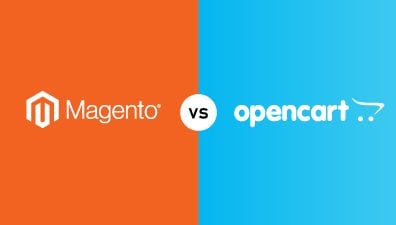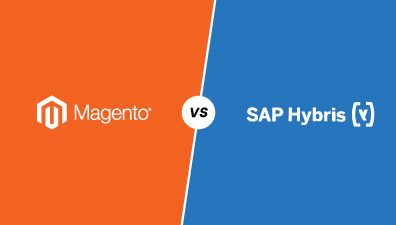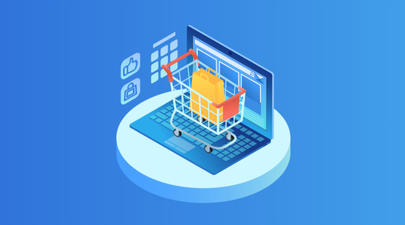When it comes to choosing eCommerce platforms, many people have difficulty determining between Magento and SAP Hybris. Each provider has its unique strengths and weaknesses, so choosing a platform for your website development completely relies on your specific business needs. Let’s take a look at some critical factors between Magento vs SAP Hybris to figure out the main differences so you can decide what is suitable for your business.
Table of Contents
Magento and SAP Hybris: Overview
Magento
Magento is a popular open-source eCommerce platform used by businesses to create and manage online stores. It was initially released in 2008 and has since gained significant popularity and a strong user base.
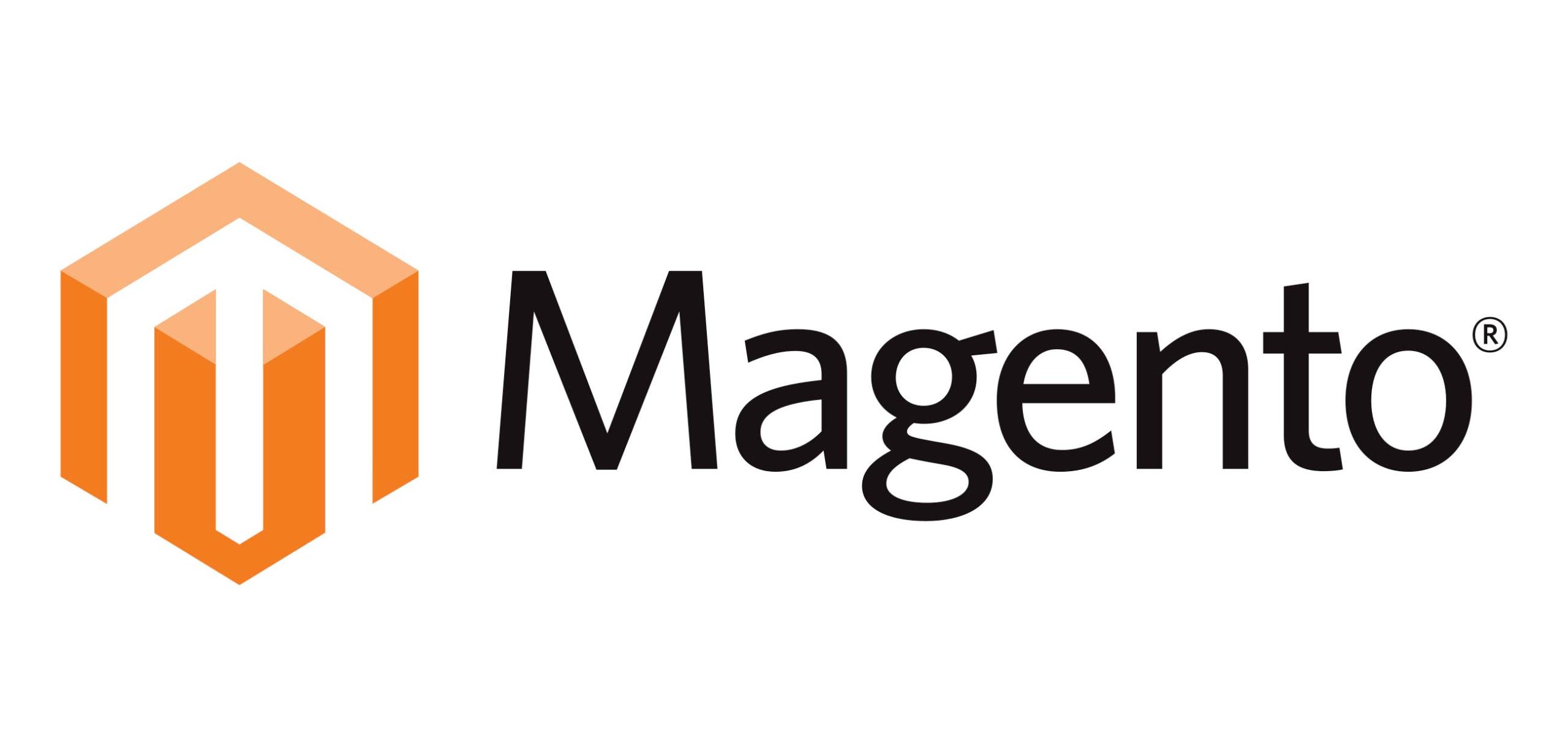
Magento offers a robust set of features and customization options, making it suitable for small to large businesses. It provides a flexible and scalable architecture that allows businesses to tailor their online stores to their specific needs. The platform supports multiple payment gateways, shipping methods, and international currencies, enabling businesses to sell products globally. With 250,000+ merchants and 700,000+ websites using Magento in 172+ countries, Magento has always been the best eCommerce platform globally.
Hybris
On the other hand, SAP Hybris is not very prominent since it’s a kind of luxury eCommerce platform. Unlike Magento, Hybris is mainly used by large enterprise users.
Hybris, now known as SAP Commerce Cloud, is a leading enterprise-level eCommerce platform that provides businesses with a comprehensive suite of tools to create, manage, and optimize their online stores. It was originally developed by the company Hybris, which was acquired by SAP in 2013.
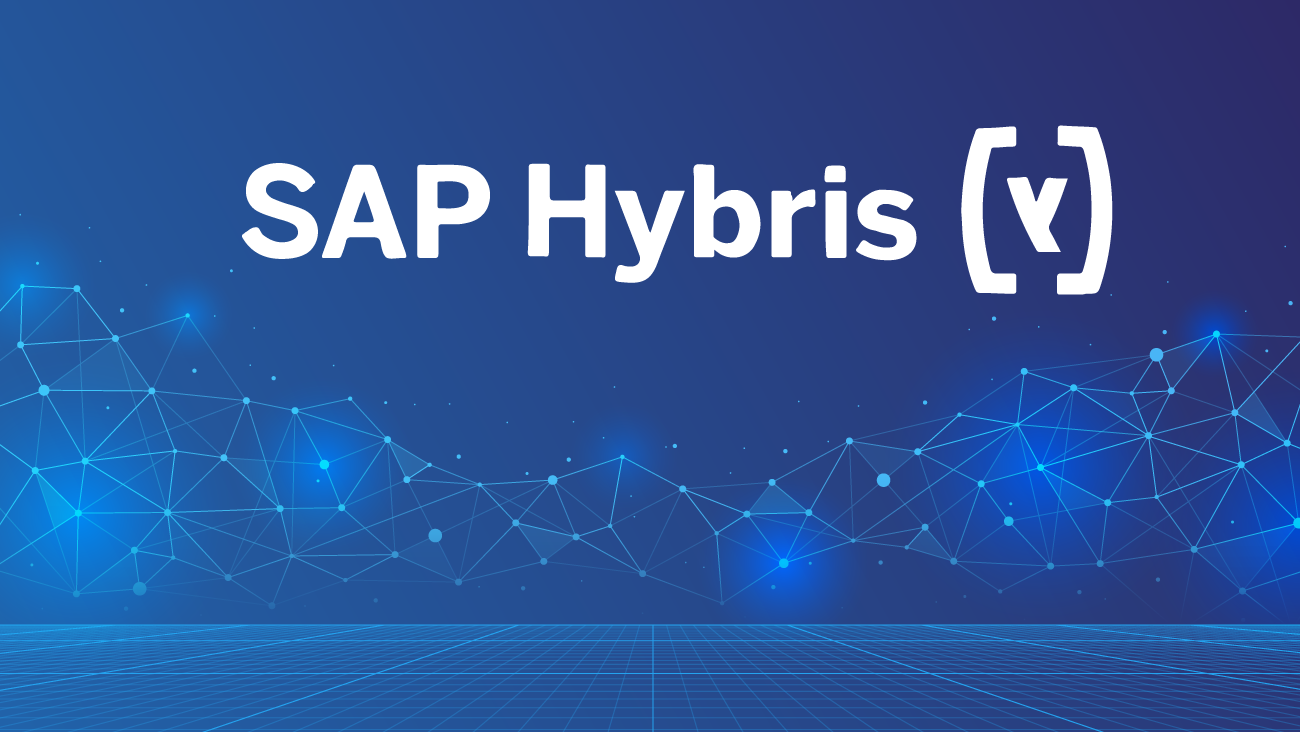
SAP Commerce Cloud offers a range of features and functionalities that cater to the complex requirements of large-scale eCommerce operations. It combines various components to provide a seamless and integrated customer experience across multiple channels, including web, mobile, social media, and physical stores. Today, Hybris has 4600+ customers in 97+ countries.
Magento vs SAP Hybris: Key Factors in Comparison
Customization Features
Magento customization is more flexible as compared to SAP Hybris. Magento gives merchants absolute control over their sales channel. They can change the content, design, or anything on Magento so long as they can keep up with the coding requirements. Furthermore, the data analysis feature of Magento allows merchants to optimize websites by analyzing information and finding necessary recommendations.
When it comes to customization, Hybris may not be as flexible. There is a multi-layered system for customization that requires time and expertise to personalize. Understanding of the Model, Service, and Jalo tiers is required to customize. However, one of the highlighted features is reasonable design flexibility with templates.
Scalability
Scalability is crucial for eCommerce website development because it has a significant impact on the channel’s expansion capacity to support the company’s growth. When it comes to adaptive level, agile and resilient, Magento gains the upper hand over Hybris.

SAP Hybris’s rigid architecture makes scaling extremely difficult. It’s also not very user-friendly. Customized Hybris takes time and expertise because of a layered system with benefits and limitations. To build a Hybris site, we need weeks to months or years depending on the site and unique user needs.
In contrast, Magento is incredibly scalable thanks to its open-source nature. It gives developers complete control over the buying channel. Besides, Magento offers a wide range of extensions to efficiently personalize and upgrade your eCommerce website. The timeline to build a Magento site is also shorter than Hybris, it only takes two weeks at a minimum; months at a maximum. This is also why many companies have chosen Magento to provide their customers with unique shopping experiences.
Ease of Use
Hybris, as well as Magento, require essential development and programming knowledge to build a shopping website. Fortunately, Magento provides a great deal of support and features, such as training courses to assist merchants in easily creating and managing an online shop. For Hybris, there are no training courses but tools like Smart Edit can make the back-end easier to use. However, it’s not a complete do-it-yourself solution so when comparing SAP Hybris Commerce vs. Magento, Magento is more accessible.
In terms of enhancing user experience, each platform has different strengths. Many customers consider Magento to be one of the easiest and most intuitive eCommerce platforms. Thanks to a simple and user-friendly interface, customers can look for their favorite products distraction-free. On the other hand, Hybris customers can save repeat purchases, buy in bulk, and use personalization features to make checkout easier, etc. We can say the feature of SAP Hybris can be utilized by B2B businesses.
Integration
There is a difference in the size of integrations between Magento and Hybris. While Hybris only integrates with five systems (Data Hub, ERP, CSV, ImpEx, and SAP CRM), Magento is available for a much greater range of business systems and applications. With at least 30 in-default integrations and a great deal of other customizable integrations, Magento is certainly the winner of this section.
Customer Support
Even though both Magento and SAP Hybris are extremely capable eCommerce platforms, Hybris once again lost points in support capabilities against Magento. Hybris only provides phone and email support while Magento offers a wider range of services from 24/7 phone support, live chat, email support, and a ticket-submitting line. Moreover, Magento has a big supporting community as the number of Magento agencies is huge.
License Pricing
One thing Hybris vs Magento has in common is the price will increase according to the rise in business requirements. Hybris pricing is determined by the demand, such as the number of integration points or the system’s complexity. Magento also depends on those factors, as well as annual online sales, to determine the final price for a business.

In terms of Magento, it has a varied pricing scheme. Currently, it offers 2 packages: Magento Commerce and Magento Open-Source. The license cost of the Magento Commerce solution starts at $25,000 and can go up to $125,000 each year. For Hybris, pricing starts at around $54,000 per year and increases from there.
Magento vs SAP Hybris: Who is the Winner?
Both Magento vs Hybris are widely used in medium and large enterprises (B2B and B2C businesses). Magento has rather strong native B2C capabilities and slightly less powerful B2B functionality. Hybris, in turn, is rather multi-dimensional since it perfectly works for B2B, B2C, and B2B2C businesses. It allows managing all your suppliers, distributors, and customers seamlessly in a unified ecosystem.
In a nutshell, Magento is a more popular eCommerce platform. While some features of Hybris are more advanced than Magento, pricing and scalability make Magento the winner.
In conclusion
Magento vs SAP Hybris are both excellent eCommerce platforms with their strengths. However, there are numerous factors such as financial ability, market direction, and a variety of other considerations encountered when it comes to determining your online store. Hopefully, after reading the whole article, you probably know which platform to choose for your business.
At Magenest, we build and develop eCommerce solutions using the Magento platform. With years of experience working in developing eCommerce websites, we commit to bringing high-quality products and services to optimize your business effectively. Contact us now for the best advice or directly discover our seasoned Magento development services!


